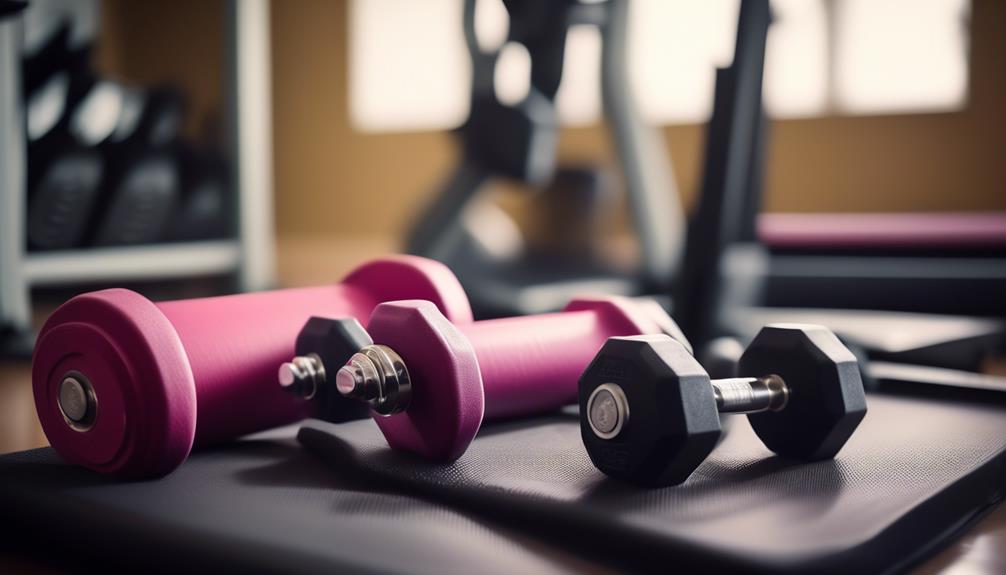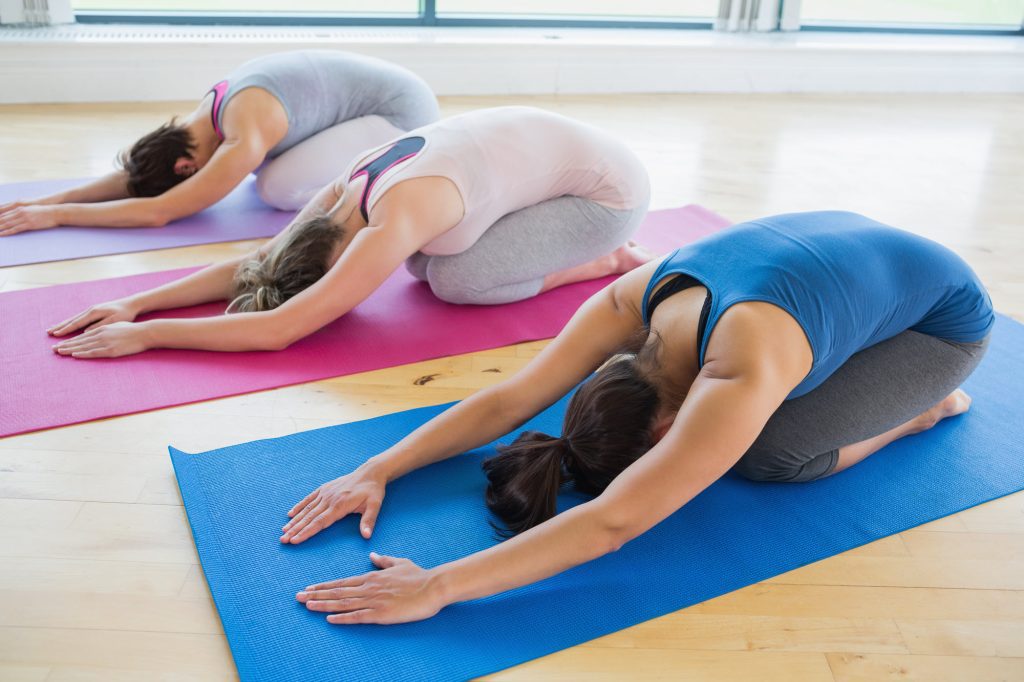Are you tired of always feeling tired? You’re not alone. Menopause can bring about an onslaught of changes, and fatigue is often one of the most challenging ones to deal with.
What if the solution is as simple as lacing up your sneakers and breaking a sweat? It might sound too good to be true, but research suggests that regular physical activity could be the key to overcoming your menopause-induced lethargy.
Let’s explore this promising possibility further and see how you can tap into the energizing potential of exercise. After all, what menopausal woman wouldn’t want to conquer fatigue and reclaim their zest for life?
Dr. Gala’s Quick Take
Yes, exercise can be a great and holistic way to combat menopause fatigue, offering a natural energy boost and promoting quality sleep. Regular physical activity can also sooth symptoms associated with menopause.
How Exercise Can Help You Overcome Fatigue During Menopause
If you’re battling fatigue during menopause, regular exercise could be your ticket to a more energized life. Engaging in an effective workout routine can exponentially improve your energy levels. It’s not just about combating menopause fatigue … it’s about seizing control and demonstrating your power over your body’s changes.
Aerobic activities, whether high or low intensity, can significantly reduce fatigue symptoms. They enhance mitochondrial function, a critical factor in energy production during menopause. Strength training too, promotes muscle health, helping you fight age-related muscle loss and weakness.
If you’re wondering if low-intensity gentle exercise will actually get the job done … the answer is an unequivocal YES! High-intensity exercise may create too much stress on your body. Gentle exercise may be all you need right now.
Regular exercise doesn’t just boost your energy levels, it also enhances your sleep quality. A good night’s sleep is essential to feel refreshed and invigorated.
Here’s a pro tip: wrap up your exercise routine earlier in the day. This way, you’re not stimulating your body right before bed, helping you stay asleep longer. It’s also helpful to exercise in a “fasted state.” Exercising before your first meal will have you burning fat more easily.
Understand the impact of menopause on your exercise participation. Craft a realistic workout plan, and then stick to it. This is your time to overcome barriers, to command your well-being.
How Often Should You Exercise During Menopause?
When navigating through menopause, it’s important to aim for at least 30-60 minutes of exercise most days of the week to help boost your energy levels. This may seem challenging, given the fatigue and other symptoms you might be experiencing, but remember, you’re strong and capable.
Exercise, both low and high intensity, significantly reduces fatigue symptoms. Moderate exercise can be a real game changer, increasing your energy and making you feel more powerful during menopause. And it doesn’t have to be exhausting. A brisk walk, a dance class, or a yoga session all count towards your exercise quota.
Moderate aerobic exercise improves energy levels and overall fitness during menopause. It aids in building a strong foundation for cardiovascular health, supporting your post-menopausal health.
Your journey through menopause may be challenging, but you have the power to shape your experience. Regular exercise can be your ally, helping you combat menopause fatigue and reclaim your vitality. So, lace up your shoes and embrace the empowering benefits of exercise during menopause.
How To Manage Stress With Exercise During Menopause
Managing stress during menopause is a challenge, but you’re not alone. Exercise plays a vital role in stress management, particularly when it comes to choosing the right types of workouts and scheduling them effectively.
Post-workout relaxation techniques will allow you to harness the benefits of exercise while keeping stress levels in check. Yoga Nidra is one of my favorite ways to end an exercise session. I created a guided session that is included as a resource in the MOLT Method™ Program.
Exercise Types For Relief
Incorporating different types of exercise into your routine can help to manage stress and alleviate menopausal fatigue.
Moderate aerobic activities like swimming or cycling boost energy levels, while strength training builds muscle, aiding in staying active and fit.
Try yoga or Pilates to reduce stress and improve flexibility.
High-Intensity Interval Training (HIIT) combats age-related muscle loss, managing stress, and maintaining hormone levels. If you opt for HIIT, keep your sessions to 30 minutes or less to reduce the stress on your body that is creating a cortisol spike.
Stress can sabotage your efforts to combat fatigue and may lead to fat accumulation. Not your desired result!
Low-impact activities like water aerobics provide gentle ways to stay active.
Remember, regular physical activity promotes better sleep, essential in battling fatigue.
Use these exercise types for relief and take control of your menopause journey.
Scheduling Workout Sessions
Building on the empowering benefits of varied exercises, it’s essential to schedule your workout sessions effectively to manage menopause fatigue and stress.
Consistency is key, so plan sessions at the same time each day. Accommodate hormonal changes and shifting energy levels by planning shorter, more frequent sessions. This strategy, associated with physical activity, can help manage menopausal symptoms.
I recommend incorporating 30 minutes of gentle to moderate exercise most days … before your first meal.
Incorporate a blend of aerobic, strength, and flexibility exercises to maintain balance and boost energy levels. Listen to your body and adjust the intensity of your workouts as needed.
Consider joining a group class or finding a workout buddy for support and motivation. With smart scheduling of workout sessions, you can maintain a consistent routine to combat fatigue and stress during menopause.
Relaxation Techniques Post-Exercise
After a revitalizing workout, you’ll find that adding relaxation techniques like deep breathing or yoga can work wonders in managing your menopausal stress. Not only do they aid in reducing menopause symptoms, but these post-exercise practices also combat fatigue during menopause.
Imagine unwinding with mindfulness meditation, progressively relaxing your muscle groups, or using aromatherapy. The power you gain from managing your stress post-exercise is empowering, making you feel more controlled and less overwhelmed.
Visualization techniques can also be beneficial, guiding you towards a calmer, balanced state. Yoga Nidra is a valuable tool to navigate through menopause with grace and strength. You can find my special yoga nidra meditation that I use to close my Mindful Movement™ Class as a resource in the MOLT Method™ Program.
Exercise and relaxation techniques together can be your winning combination against menopausal fatigue.
What Is The Best Type Of Exercise During Menopause?
Let’s explore some options along with the benefits of aerobic exercises, strength training, yoga, and other relaxation techniques.
Benefits Of Aerobic Exercise
When it comes to combating menopause fatigue, incorporating aerobic exercise into your routine can be a real game-changer. As a woman going through menopause, this type of exercise can significantly improve your energy levels and mood.
The benefits of aerobic exercises are substantial, from enhancing mitochondrial function for improved energy to helping maintain muscle tone and function. With regular practice, you’ll notice a reduction in fatigue symptoms and mood boosts due to the release of feel-good hormones.
It’s a powerful way to reclaim control over your body and well-being during this challenging phase of life. Energy levels and aerobic exercise are associated in a positive way for menopausal women.
Importance Of Strength Training
While aerobic exercises energize you during menopause, don’t underestimate the power of strength training. It is the best type of exercise to combat muscle loss and weakness at this stage. Strength training is not only for your muscles but also your overall health. You’re not just lifting weights, you’re lifting away menopause fatigue.
The health benefits range from boosting your energy to promoting better sleep. Building and retaining your muscle is crucial at this stage, and with consistent effort, it’s entirely within your grasp. Remember, you’re not just combating muscle loss, you’re also improving your mitochondrial health and restoring nerve signaling.
And anyone can do strength training. It’s easy to modify for your current ability.
Yoga And Relaxation Techniques
Embracing yoga and relaxation techniques might just be what you’re looking for during menopause, helping to reduce fatigue and promote your overall well-being. Menopause fatigue can be exhausting.
Yes, fatigue creates exhaustion. Everything you do requires a bit more effort.
Yoga is another type of exercise that not only combats fatigue but also improves your sleep quality. Regularly practicing yoga can also aid in managing other menopausal symptoms, like hot flashes and mood swings, by reducing stress and anxiety.
These techniques offer a holistic approach to your health, maintaining energy levels and improving flexibility.
Why Physical Activity Matters For Your Energy Levels During Menopause
During menopause, boosting your energy levels becomes crucial, and regular physical activity can be your dynamic ally. It’s not just about losing weight or maintaining fitness … it’s about harnessing energy and combating menopause fatigue. Exercise, particularly aerobic, which requires that you increase your heart rate, improves mitochondrial function, enhancing your metabolism and energy levels during this transitional phase.
Physical activity helps maintain muscle tone and size, counteracting the speed and power declines often seen during menopause. It promotes mitochondrial health, aids muscle repair, and restores the nerve signaling involved in muscle contraction. All these actions are vital in fighting fatigue and weakness associated with menopause.
Embrace physical activity, not as a chore, but as an empowering tool. Understand its impact on your well-being during menopause, and use this knowledge to overcome barriers and maintain an active lifestyle. You need to take consistent, realistic steps towards better energy levels.
Exercise earlier in the day to burn more fat and for better sleep quality, which in turn, reduces menopause fatigue. And, it’s worth repeating, exercising in a “fasted state” amplifies results.
Key Takeaways
- Regular exercise during menopause can improve feelings of energy and combat fatigue symptoms.
- Both low and high-intensity exercise can significantly reduce fatigue during menopause.
- Incorporating a variety of exercises is key. Using a combination of aerobic activities, strength training, yoga, and Pilates, can effectively manage stress and fatigue.
- Relaxation techniques, like deep breathing, yoga, and mindfulness meditation, when combined with other moderate types of exercise, can help alleviate menopausal fatigue and symptoms.
Conclusion
So, let’s hit the road! Walking is the best and most underrated form of exercise.
Studies show that women who exercise 150 minutes a week (just 30 minutes 5 days/week) during menopause reduce their fatigue by a whopping 65%. That’s energy waiting to be reclaimed!
Remember, every step, stretch, or stroke counts towards your well-being.
You’ve got the power to turn your menopause journey into a vibrant dance.
“If you came into my office, I’d ask you a lot of questions that would help us connect the dots … so that together we can deal with your toxic stress.
Every situation is unique and you need a plan that works for you. Not a one-size-fits-all solution.
If you’re thinking you can’t come into my office, don’t worry. I’ve created a program with all of my initial recommendations to help you unravel the mystery. You can use it at home and at your convenience.
So if you’re thinking that managing chronic stress just isn’t possible … or even the answer … for you, I want to show you what you may be missing.
And how you can identify the toxic stressors that are creating your symptoms with my Human Energy System Reboot. You can get started HERE.” – Dr. Gala




